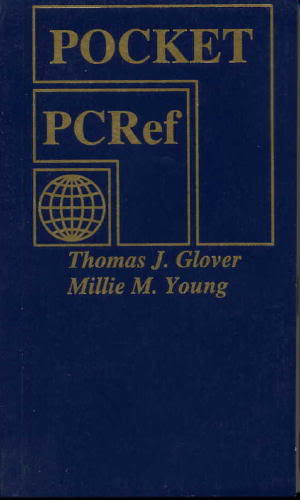BBS in the Twenty-First Century
Contributed by: masodo on Sunday, April 29 2012 @ 11:28 am UTC
Last modified on

Image Source: Gizmodo[*1]
In this age of broadband internet and universal connectivity it is somewhat difficult to recall life prior to the World Wide Web. However, one need not venture all that far back through history to arrive at a time when most folks who possessed personal computers never imagined the potential those devices had for reshaping global society.

My early personal computing involved chiefly small business type word-processing chores. The discovery that - with the addition of a "modem" device - the PC could be pulled into service as a fax machine was - for me - a watershed event. My eyes were opened to the added versatility that a connection to the telephone line would bring to even my lowly home computer system.
Suddenly that list of public computer bulletin board systems in the back pages of my dog-eared Pocket PCRef took on a whole new significance. I was happy to discover there was a system in my calling area and wasted little time in making the connection. Little did I realize that with that phone call I was to open a portal from my home to the world...
It was my exploration of this BBS system and interactions with its' users that led me to the hidden pathways of a global, interconnected network of diverse computer systems. It was exciting and new. It was a realization that suddenly I possessed the ability to explore the World. It was the BBS that facilitated the quest.
The BBS contributed directly to the growth and popularity of the World Wide Web. Soon thereafter it was the ability of the public to connect directly to the Internet (read ISP) that led to the near extinction of the BBS as a destination and a portal. Fortunately for us, there still remain a few alcoves along the information superhighway where the spirit and many of the features of yesterdays' bulletin board systems are alive and well.
I was recently reminded of a long forgotten login account I created with Monochrome BBS and decided to drop-in and see how it was faring these days. To my pleasure and surprise I found it to be still hopping, still happening, still relevant and - most importantly - still enjoyable to visit. If you have never visited a BBS, I highly recommend the detour. For those who remember the BBS days and want to recapture the fun and adventure - by all means - take the time to visit Mono.org. You can begin your adventure by visiting the Mono.org website, telnet to mono.org or (for those hep-cats in the crowd) ssh mono@mono.org.
Monochrome is a long-established BBS with unique discussion, chat and messaging features. Mono (to its friends) is the traditional country pub of the Internet. There's a friendly bunch of regulars, and the conversations cover pretty much everything.
The Mono community started in the early 90s amongst the UK university population, but has grown to encompass users from all over the world. Our users are enthusiastic about what they discuss and there are files ranging over every topic imaginable (and then some).
Mono has a novel text interface, making it quick and easy to use. It's a welcome change from the visual overload of web forums and flash animations.
Mono is free and you just need an email address to register. Why not try it out as a guest and see if you'd like to become part of our community.
http://Mono.org/[*2]
In order to connect to remote computer systems in this day and age the usual method is to use the SSH protocol[*3] . This protocol - in essence - enables two computers to connect via a secured "tunnel" through the internet (along the same lines as VPN or Virtual Private Networking.) In order to make the connection via SSH it is necessary to utilize ssh client software. Most Linux flavors as well as MAC systems have this facility built in to their terminal apps. Windows does not include ssh client software but there are several freely available options. Perhaps the most talked about is a program called PUTTY[*4] . I have always been partial to the Bitvise Tunnelier[*5] but have recently discovered the incredibly versatile TeraTerm (see below.)
Tera Term is a free software/open source terminal emulator for Windows. Supports:
- Serial port connections.
- TCP/IP (telnet, SSH-1/2) connections.
- IPv6 communication.
- VT100 emulation and selected VT200/300 emulation.
- TEK4010 emulation.
- File transfer protocols (Kermit, XMODEM, ZMODEM, B-PLUS and Quick-VAN).
- Scripts using the "Tera Term Language".
- Japanese, English, Russian and Korean character sets.
- UTF-8 character encoding.
http://en.sourceforge.jp/projects/ttssh2/[*6]
Whichever SSH software you choose
utilize it to discover a side of the internet that few even know exists.
Join the fun - tell your friends!
[tag:BlogDogIt retro computing bbs social K+Club]

